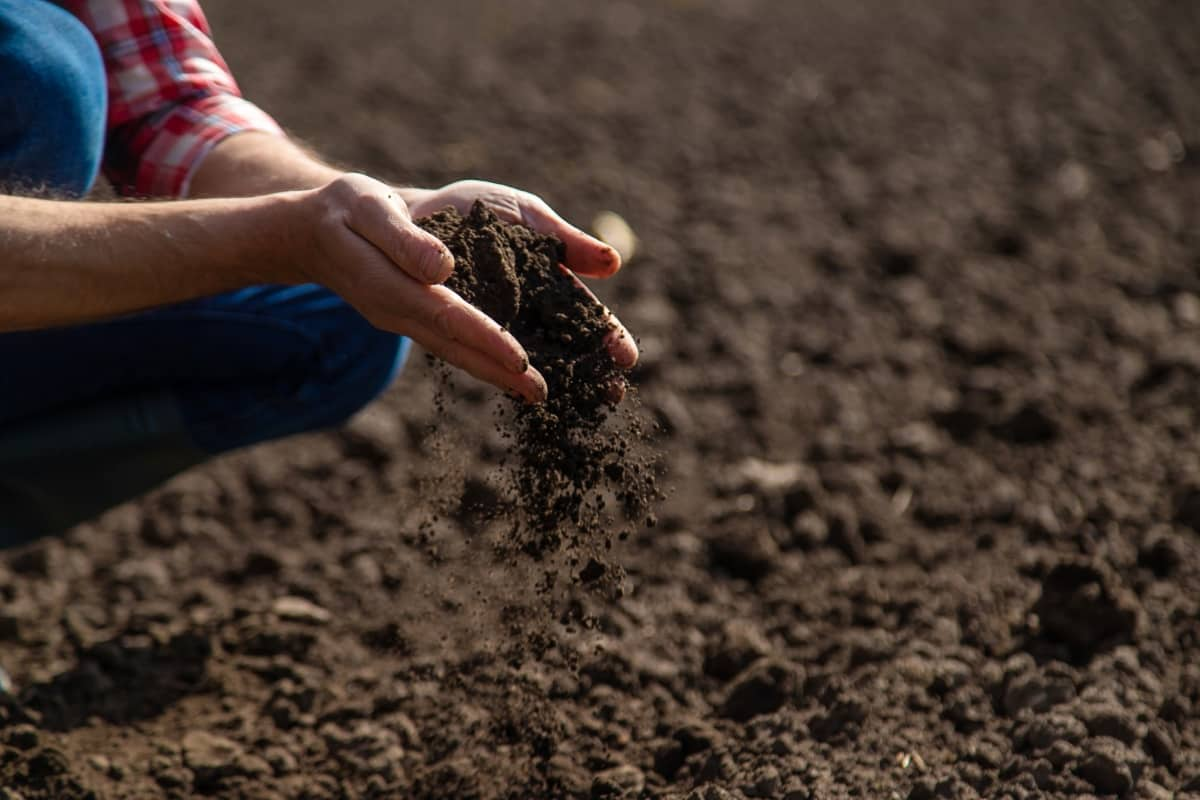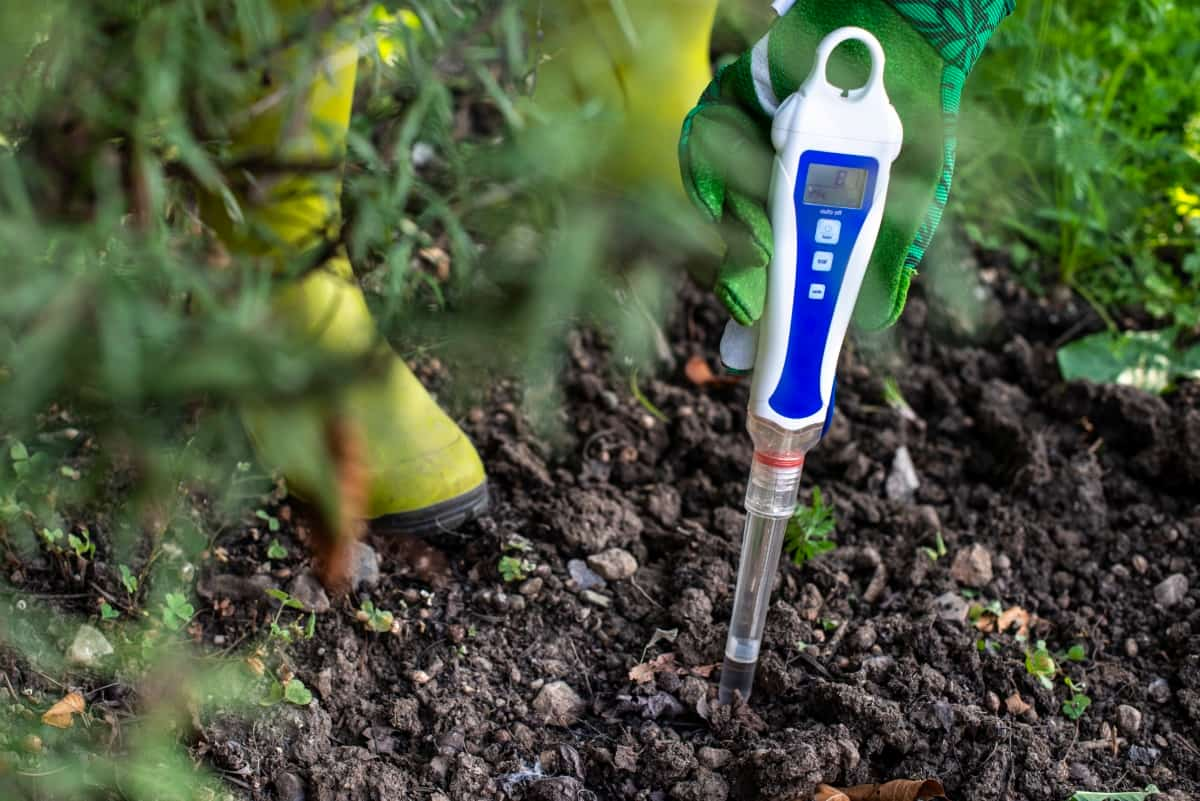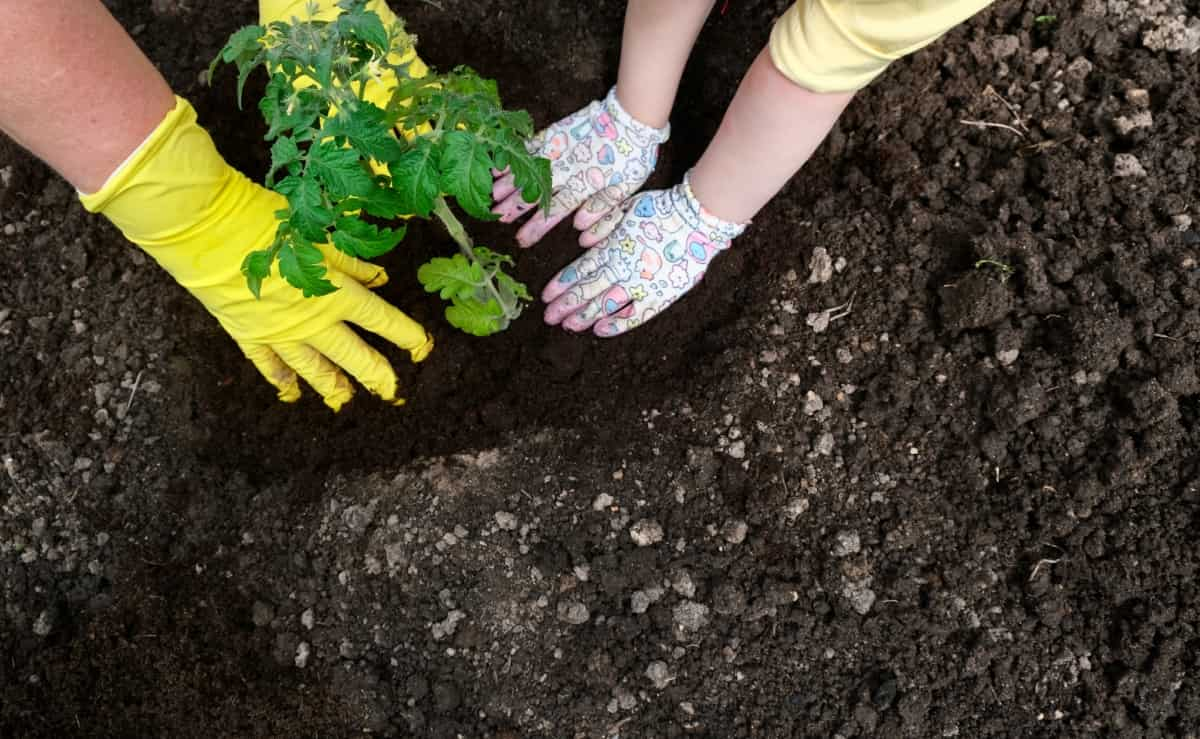Black soil is also called regur soil. Black soil contains high levels of iron, alumina, and magnesium due to weathering of lava rocks. A well-known characteristic of it is its ability to hold moisture. These soils become dry and crack during hot weather, which allows them to breathe. It is commonly referred to as black cotton soil because black soil is ideal for cotton cultivation. Climatic conditions and parent rock materials strongly influence black soil formation.

Factors that Affect Crop Performance on Black Soil
Soil Fertility
The fertility of the soil is a major factor affecting crop performance on black soil. For crop growth to be optimal, nitrogen, phosphorus, and potassium must be present in the correct ratios. Organic matter can improve soil fertility by increasing nutrient availability.
Water Availability
Crop performance on black soil is also affected by water availability. Water must be provided in adequate quantities for healthy crop growth and replaced as it is lost through evapotranspiration.
Soil pH
Crop performance on black soil is also affected by the pH of the soil. As most crops cannot absorb essential nutrients from soil outside a pH range of 6.5-7.5, neutral soil is preferred. Crop yield can be reduced if the soil is too acidic or alkaline.
In case you missed it: Soil Management for Organic Farming

Soil Texture
Black soil’s texture also affects crop performance. Soil with a high clay content retains more water and nutrients, while soil with a high sand content has better drainage and aeration. A soil texture that combines clay and sand particles is ideal for crop growth.
Soil Structure
Crop performance on black soil is also affected by the soil structure. Healthy root growth and crop performance require good drainage and aeration in soils with good structure. A poorly structured soil can lead to waterlogging and nutrient deficiencies, resulting in lower crop yields.
Best Crops for Black Soils
Black soil is a soil that contains a lot of organic matter, which makes it ideal for growing crops. The black soil has rich in organic matter and clay, making it ideal for growing various crops.
Grains
Cotton, Wheat, Rice, Barley, Rye, and Sorghum are all grains that grow well in black soil.
Vegetables
It is well suited for growing vegetables on black soils because they contain high amounts of clay. Among the vegetables that can grow well in these soils are tomatoes, eggplants, peppers, carrots, broccoli, cabbage, onions, radish, and spinach.
In case you missed it: Best Organic Tomato Fertilizers: For Better Yield and Taste

Fruits
It is well suited for growing fruits on black soils since they contain a lot of clay. These soils are ideal for growing Apples, Bananas, Pears, Oranges, Grapes, Strawberries, Melons, Plums, Peaches, and Sugarcane.
Legumes and Cereals
It is possible to grow legumes and cereals on black soil. The nitrogen produced by legumes helps enrich black soil, making them ideal for it. Legumes are known to increase the fertility and productivity of black soil since black soil typically contains a high concentration of minerals. Peas, beans, lentils, chickpeas, and soybeans are among the legumes suitable for black soil.
Also, cereals such as wheat and rice grow well in black soil. Minerals in the soil provide cereal crops with the nutrients they need to grow. As a result of the soil’s ability to retain moisture, the plants receive the necessary amount of water. Furthermore, black soil can retain heat, which is beneficial for the growth of wheat and rice. In addition to maize, millet, wheat, rice, barley, oats, and oil seed, tobacco is one of the most common cereals suitable for black soil.
Root Crops
You can grow carrots, groundnuts, turnips, beets, parsnips, potatoes, radishes, sweet potatoes, and yams on black soil.
Tree Crops
Tree crops thrive in black soil because they contain high organic matter levels, which help retain moisture and nutrients. Tree crops that grow well in black soil include mangoes, olives, almonds, walnuts, pecans, cashews, apples, peaches, plums, and cherries.
Flowers
Marigolds, Petunias, Asters, Zinnias, Pansies, Impatiens, Columbines, and Snapdragons are among the flowers that thrive in black soil.
Benefits of Growing Crops Suitable for Black Soil
- As black soil contains a high level of clay and organic matter, crops suitable for black soil are better able to absorb nutrients. Thus, black soil produces healthy and more productive crops.
- Crops grown in black soil require less watering and are more drought-resistant than those grown in other soils.
- Due to its high organic matter content, black soil is an ideal choice for growing crops due to its high fertility.
- Black soil has clay particles that improve its structure, making it easier to cultivate and allowing better drainage. Waterlogging and crop diseases are reduced as a result.
- In addition to being more erosion-resistant, black soil also protects crops from wind and water damage.
- Farming in black soil reduces the environmental impact of farming by requiring less fertilizer than in other types of soil.
Challenges and Tips to Grow Crops with Black Soil
- Black soil has a clay-like texture and is heavy. As a result, it retains water for longer, so it is important to ensure proper drainage. Organic matter can be regularly incorporated into the soil to achieve this. By doing this, the water holding capacity will be improved, and excess water will be drained.
- Black soil’s low organic matter content makes it less nutrient-rich than other soil types, resulting in poor crop yields. Organic fertilizers improve the soil’s fertility. Moreover, they enhance the soil’s porosity, which helps it absorb water and nutrients better.
- Several crops can be toxic to black soil because of their high acidity. Black soil is not suitable for all seeds. Seed varieties suitable for this soil type should be chosen.
- Because black soil is compacted, crops have difficulty accessing oxygen because air can’t circulate. Plant roots require adequate oxygen supply, which is ensured by improving soil aeration. Organic matter can be incorporated, or mechanical means, such as tilling, can be used.
Conclusion
The organic content and moisture of black soil are higher. It is very moisture-retentive. Wet weather causes it to swell greatly and become sticky. Black soil is widely used for several important crops due to its high fertility and moisture retention ability.
- Ultimate Guide to Ossabaw Island Hog: Breeding, Raising, Diet, and Care
- Ultimate Guide to Juliana Pig: Raising Facts, Size, Diet, Care, and Lifespan
- Raising Lleyn Sheep: Disadvantages, Price, Uses, Characteristics, and Care
- Ultimate Guide to Meishan Pig: Breed Facts, Breeding, Raising, and Care
- Ultimate Guide to Teacup Pigs: Raising, Diet, Lifespan, Cost, and Care
- Guide to Raising Poll Dorset Sheep: Facts, Profile, Characteristics, Uses, and Care
- Ultimate Guide to Bighorn Sheep: Characteristics, Diet, Lifespan, Breeding, and Lifecycle
- Ultimate Guide to Raising Katahdin Sheep: Farming Facts, Breed Profile, Uses, and Care
- Ultimate Guide to Raising Oreo Cows: Belted Galloways Farming Facts, Profile, Uses, and Care